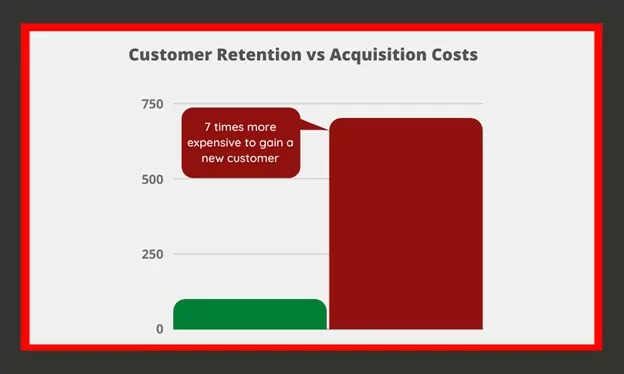Best business practices don’t solely focus on analytics and trends to predict what may happen in the future. In today’s landscape, it’s equally as important to focus on current and past events for data analysis that can inform business decisions. Business intelligence allows your company to do exactly that.
The global business intelligence market is projected to grow by a CAGR of 8.7% until 2028. Every business wants to convert more leads, which is why companies should use business intelligence in sales and marketing to their advantage.
Key Takeaways
- Business intelligence is all about using data reporting tools to inform the decision-making of businesses.
- Marketers can use business intelligence tools to automate tasks, increase productivity, and optimize workflow.
- Business intelligence in sales can be used to increase order fulfillment, lower inventory costs, and bolster profits.
Business Intelligence Defined
Business intelligence (BI) is defined as any software and services that use data to create insights that inform business strategy, decisions, and procedures. For example, BI tools use data sets to extract analytical discoveries from graphs, charts, maps, reports, summaries, and dashboards to equip users with specific intelligence about the business. These collections of tools provide reliable, digestible access to insights about the state of business based on available data.
Why Business Intelligence Matters
Companies that employ BI can understand their robust business data based on how smaller categories of data are organized. These organized sources include customer-focused data retrieved from varied sources like marketing automation software, social media platforms, email marketing, CRM tools, and online customer interactions.
The benefits of BI are all about using data reporting tools to transform strategic decision-making as opposed to business analytics, which is more centered around process management.
How Business Intelligence Bolsters Marketing
BI enhances marketing by providing marketers with an in-depth analysis of customers’ preferences, attitudes, and behavior. In turn, marketers can use that analysis to create better marketing campaigns for specific target audiences and generate significant results.
Improve the Customer Experience
Business intelligence equips marketers with customer insights to categorize customers into groups and attract the type of prospects that fit into the business’s target audience. Savvy marketers understand that the customer experience is paramount, and BI tools can help them to identify customers’ behavior, needs, and wants.
Additionally, BI tools automate tasks, refine processes, enhance productivity, and prioritize workflows. Ultimately, business intelligence in marketing fosters improvement in sales, customer experience, organizational efficiency, and performance.
Use Data to Define Goals
BI tools use data to help back up decision-making while boosting marketing function and enhancing the visibility of sales data, allowing marketers to refine their marketing campaigns. If your company deals with large sets of data, business intelligence can lead marketers to ask the right questions concerning that data and define KPIs most relevant to business goals.
Source: Finances Online
Refine Your Marketing Campaign
Business intelligence can monitor and analyze your business’s marketing campaign performance in real time and compare them against previous trends. With this information, companies can optimize marketing budgets and isolate promotional strategies that offer the best results.
By using marketing data, businesses can execute their cross-sell and best-sell campaigns while easing the brakes on lower-performing projects. After thorough analysis, the campaigns can be either refined or retracted, allowing businesses to optimize performance and decrease wasted resources.
Define Your Demographic
Business intelligence in marketing facilitates the organization of data into a multi-channel stream, allowing businesses the ability to optimize marketing strategies. By analyzing demographic data, marketers can send campaigns to the correct audience at the proper time using the right channels.
Business intelligence in marketing can collect a wealth of data about consumers from any source and present a dashboard view of:
- Purchasing habits
- Preferred products
- Demographic stats
- Interaction models
- Pain points
Benefits of Business Intelligence in Sales
Your business must possess the proper data that will lead to predictive forecasting and an efficient sales strategy. Business intelligence in sales allows organizations the ability to accomplish these minor objectives to accomplish the major one — increasing sales.
Improve Predictive Forecasting Accuracy
Accurate sales forecasts provide many benefits, such as increased order fulfillment, lower inventory costs, and higher profits. Business intelligence improves the speed and accuracy of sales forecasts by using adjacent information based on product demands, promotional campaigns, and other factors. For example, the analysis of sales history data can improve forecast accuracy, leading to more timely procurements, future revenue forecasting, and efficient inventory management.
Optimize Your Promotional Campaign
With the integration of sales-based business intelligence, product companies can squeeze the most out of every penny spent on advertising and marketing to maximize revenue. Business intelligence tools give organizations the ability to precisely measure how customers are responding to their sales promotional campaigns, therefore, motivating decision-making to allocate additional resources to the most effective campaigns.
Build on Preexisting Sales
For eCommerce businesses, building on preexisting sales through customer retention is more cost-effective and profitable as compared to acquiring and selling to new customers. Business intelligence tools can help sales professionals keep track of what existing customers buy or don’t buy. Salespeople equipped with this information can target retained customers with specific sales opportunities and campaigns.
Source: Markin Blog
Unify Sales Data to Your Benefit
Sales teams depend on cross-functional data from CRMs, customer support, and marketing teams to provide a holistic sales experience to customers. Business intelligence can improve sales by importing datasets from spreadsheets, Excel, CRM, help desks, and call center apps, which provide an in-depth analysis of closing deals and customer service quality. One of the great advantages of BI tools is they extract data from third-party applications in real time, avoiding the pitfalls of importing static data across systems.
Choose the Best Business Intelligence Software
The MXTR marketing automation platform is loaded with business intelligence tools that will transform the way your business markets and sells to customers.
Schedule a demo today to learn how our platform can help your business convert leads and optimize workflow.
Featured Image: istockphoto









